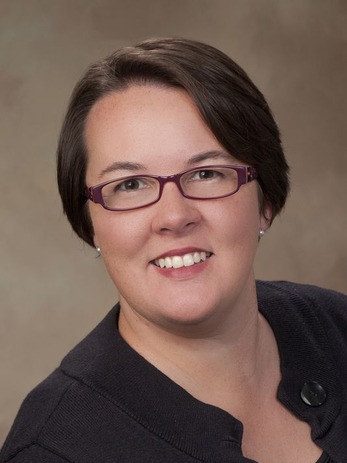HOPE Economic Mobility Forum – Seizing the Moment: Maximizing Federal Investment in Under Resourced Communities, West Memphis
September 25th, 2024
By Sara Miller, Senior Policy Analyst
Last week, HOPE hosted its final Economic Mobility Forum in West Memphis, Arkansas, entitled “Seizing the Moment: Maximizing Federal Investment in Under Resourced Communities”. Representatives from several federal agencies, local municipalities, county governments, and community development organizations convened to discuss the historic opportunities available through federal funding to improve economic mobility in local communities. The event was held in person and live streamed for virtual participants. A recording of the event is available here.
Following remarks from HOPE CEO Bill Bynum, Kiyadh Burt, Director of the Hope Policy Institute, presented local and regional data outlining the current challenges in economic mobility in the area. The data showed that economic mobility is lowest among communities in the Deep South and that rural communities like those in the Mississippi River delta will be more likely to face climate burdens in the future due to high energy cost burdens, extreme heat projections, and severe storm events. Relatedly, research shows that Deep South communities are in significant need of infrastructure upgrades.[1] Accessing federal resources is key to improving community infrastructure and financial stability of the region’s low resourced communities amidst climate and energy burdens. While these funds are critical, rural communities in the Deep South are least likely to have to have the capacity to absorb federal dollars, underscoring the need for federal programs to better consider the capacity and community infrastructure needs of rural communities.
Community Perspectives
The event then continued with panel discussions. The first, titled Community Perspectives, included local leaders who discussed the factors that affect economic mobility in their communities and the challenges in accessing the resources needed to drive economic development. Panelists included:
- Frank Bateman, Executive Director, Arkansas Black Mayor’s Association
- Martha Claire Bullen, Director Community Sustainability, Communities Unlimited
- Moderator: Charity Hallman, Senior Vice President of Community and Economic Development at HOPE
Panelists underscored their experiences working with small municipalities and counties in Deep South rural communities, and the importance of recognizing and developing the assets in those communities. The panel also lifted up several challenges faced in their communities in accessing critical federal programs including that small towns have limited resources and few staff to do grant writing and grant management.
An essential part of their work is creating relationships with key community stakeholders, which often requires a “long runway” to ensure communities have the time to prepare and staff federal investment opportunities. Communities often have to decline funding opportunities because they are not ready. Communities do not just need technical assistance with grant writing and program design, but they also sometimes need help preparing to be able to accept and manage these funds, for example, many do not have the complete, up to date audits that meet the requirements for receiving most federal funds.
Investing in America
The second panel was presented in two parts and included federal agency representatives and other resource providers that shared details about current programs that help increase economic mobility in under resourced communities. Panelists included:
Panel 1
- Adriene Brown, Region 6 Director for Arkansas, US Small Business Administration
- Jill Floyd, Arkansas State Director for USDA Rural Development
- Pete Jilek, Deputy Division Administrator, Federal Highway Administration
- Moderator Ed Sivak, Chief Policy & Communications Officer, HOPE
Panel 2
- Ronald Newman, Senior Advisor, Inflation Reduction Act Implementation, US Department of the Treasury
- Earthea Nance, Regional Administrator, US Environmental Protection Agency
- Candace H. Valenzuela, Regional Administrator, US Department of Housing and Urban Development
- Moderator: Bill Bynum, Chief Executive Officer, HOPE
Panel participants discussed the significance and volume of federal funds currently being deployed in critical need areas. For example, in Arkansas and Mississippi, $11.2 billion will be distributed in clean energy, infrastructure and manufacturing programs, an amount equal to 85% of the state budgets of Mississippi and Arkansas combined.[2] Panelists also acknowledged that previous federal practices did not aid communities equitably, but, in some cases, caused harm in underserved communities where systemic inequalities are, as Earthea Nance said, “in the bones”. In contrast, the emerging commitment to underserved areas through initiatives like Justice 40, has the potential to overcome past harms. Panelists detailed several strategies to ensure these funds are used. A key strategy is to first make communities aware of the resources available. Additionally, panelists discussed how new technical assistance programs and governmental collaborations with regional offices of the Small Business Administration, HUD, Department of Transportation, and USDA rural development can further uptake of federal investment programs through an holistic approach to access challenges. Panelists also discussed upcoming innovative program designs, i.e. direct pay, through the Inflation Reduction Act that will not require competitive grant making and is not capped to only provide resources to a limited number communities, but instead will be available to all eligible entities.
Key Takeaways from the Event
- The unprecedented deployment of federal funds for community improvement will perpetuate existing inequalities without intentional program design that increases access to rural and under-resourced communities.
- Robust and proactive technical assistance for underserved communities like small towns must be designed into federal funding programs. Technical assistance is needed throughout the lifecycle of the project, not only in grant writing, but also in program management, reporting, and auditing federal programs.
- Small towns can leverage public investments for greater impact by working in partnership with each other and with organizations like Community Development Finance Institutions (CDFIs) and HBCUs.
The event in West Memphis was the third in a series of three events on the topic of maximizing federal investment in under resourced communities. For summaries of previous events, visit here and here.
[1] Sara Miller. (2024). “Federal Funds Provide Needed Water Infrastructure Upgrades for MS Delta Communities.” Hope Policy Institute. http://hopepolicy.org/blog/federal-funds-provide-needed-water-infrastructure-upgrades-for-ms-delta-communities/.
[2] The White House, “Investing in America” accessed September 24, 2024 at https://www.whitehouse.gov/invest/






